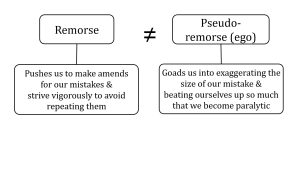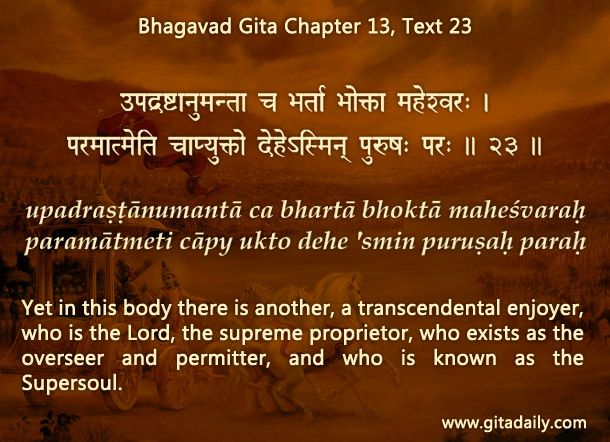 As we are finite beings, we may sometimes commit mistakes that have devastating consequences. When we realize the gravity of our blunders, we may become filled with remorse. Though the emotion of remorse doesn’t feel good, it can be good because it strongly pushes us to make amends for our mistakes and to strive vigorously to avoid repeating them. However, the forces of illusion can pervert even our healthy emotions such as remorse.
As we are finite beings, we may sometimes commit mistakes that have devastating consequences. When we realize the gravity of our blunders, we may become filled with remorse. Though the emotion of remorse doesn’t feel good, it can be good because it strongly pushes us to make amends for our mistakes and to strive vigorously to avoid repeating them. However, the forces of illusion can pervert even our healthy emotions such as remorse.
How might remorse be perverted? Through exaggeration, whereby we start feeling that our mistakes are so big that even God won’t be able to help us. What’s wrong with that feeling? It presumes that our power to mess things up is greater than God’s power to mend those things; that we ourselves are so unhinged that even God can’t fix us — that in effect we are greater than God.
When we thus contemplate and articulate this unnoticed presumption, we recognize how absurd it is. And Gita wisdom can help us discern that what we are experiencing is not remorse, but pseudo-remorse — it is ego putting on the garb of remorse. In this garb, ego perversely goads us into exaggerating the size of our mistake and beating ourselves up so much that we become paralytic. In contrast, real remorse reminds us of our urgent need to seek divine help.
Such discernment can help us shake off the deceptive spell of the ego and humbly focus on God’s omnipotence. In a mood of prayerful humility, we can seek his guidance, knowing that he is our greatest well-wisher (05.29); and that he never abandons us (13.23). The more we become devotionally connected with him, the more he will guide us from within (10.10), thereby enabling us to amend the situation as much as possible and more importantly amend ourselves as much as possible.
One-sentence summary:
If we think that our mistakes are so big that even God can’t help us, such thinking is ego masquerading as remorse.
Think it over:
- Why is remorse good?
- How might remorse become distorted?
- How can we recognize and reject ego masquerading as remorse?
***
13.23: Yet in this body there is another, a transcendental enjoyer, who is the Lord, the supreme proprietor, who exists as the overseer and permitter, and who is known as the Supersoul.
To know more about this verse, please click on the image


What an astonishing insight!! Almost like remorse in the mode of passion? Hare Krishna
Good correlation.
Remorse is the first step towards Bhakti